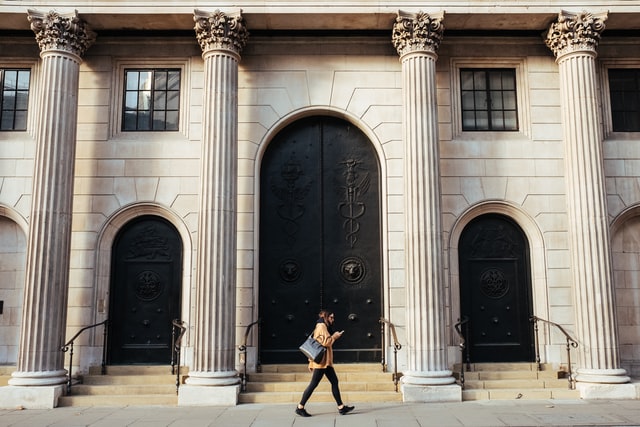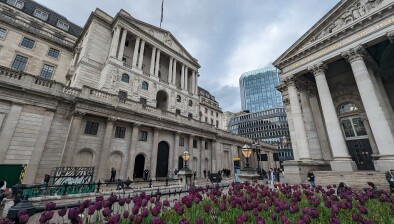Bank of England hikes interest rates to 3%

Bank of England
The Bank of England’s (BoE) Monetary Policy Committee (MPC) has voted to raise the base interest rate to 3%, a 0.75pp increase from 2.25%.
This BoE interest rate hike follows the US Federal Reserve’s decision to hike the US base rate by 0.75pp yesterday.
The increase, which was passed with a majority vote of seven to two, is the largest in over 30 years. However, the MPC noted it does not expect to have to raise rates much further, saying “further increases in Bank Rate may be required for a sustainable return of inflation to target, albeit to a peak lower than priced into financial markets”.
In today’s vote, the seven MPC members who voted in favour of the proposition were Andrew Bailey, Ben Broadbent, Jon Cunliffe, Jonathan Haskel, Catherine L Mann, Huw Pill and Dave Ramsden. The two members who voted against the proposition were Swati Dhingra, preferring to increase the rate by 0.5pp, to 2.75%, and Silvana Tenreyro, preferring to increase Bank Rate by 0.25pp, to 2.5%.
This increase is the eighth successive rise and has taken the bank rate to its highest level since the 2008 financial crisis.
Susan Love, strategic engagement lead for ACCA Scotland, commented: “Our members are clear that tackling high interest rates and inflation are their top priorities, so today’s news of a further rise to 3% will be alarming for many firms.
“ACCA’s SME Tracker data suggests declining growth and hiring intentions, while 57% report borrowing to manage cashflow is more difficult than a year ago. Undoubtedly this eighth interest rate rise will further exacerbate the challenges for the UK’s SME community.
“Accessing finance is hard and is taking longer to access. It is vital to put finance in place well before it’s needed. SMEs across the UK need stability and as much certainty from the Exchequer as it can provide to allow them to effectively plan, recover and grow.”
Kevin Brown, savings specialist at Scottish Friendly, commented: “The Monetary Policy Committee’s latest interest rate hike comes as no surprise. That such a big increase was widely expected shows how far we have come in the rate hikes conversation in the past year.
“Until recently, rates were below 0.75% for over a decade and the last time there was such a large single hike was September 1989.
Mr Brown continued: “What does that mean in practice? Debt will get more expensive more quickly, putting pressure on already strained household finances, burdened by rocketing prices and soon to be buffeted by tax hikes to boot.
“Savings rates will improve. But this is little comfort in a cost-of-living crisis, with soaring prices, lagging wages and poor real rates. Research from Scottish Friendly and CEBR [2] shows, factoring in average savings rates, that savings pots are falling at nearly 9% as of September - the worst level in 46 years.
“Higher interest rates are unfortunately the ‘medicine’ to cure high inflation. This financial pressure is a feature, not a fault of the process. However, the medicine is hard to swallow and will be painful for many – but it is needed to get inflation down. In the meantime, savers should think carefully about their options as rates are still largely net negative in inflationary terms.”




